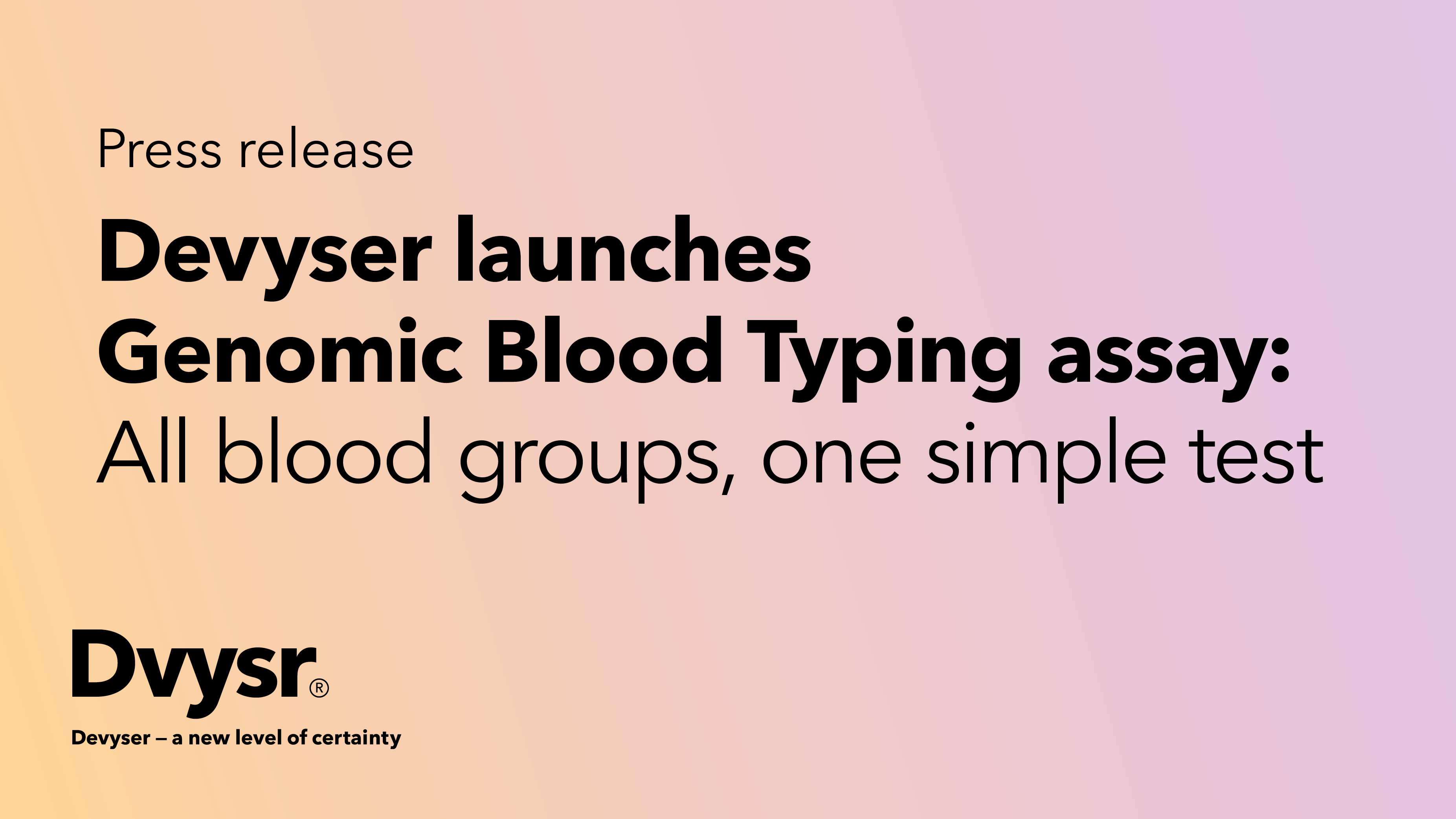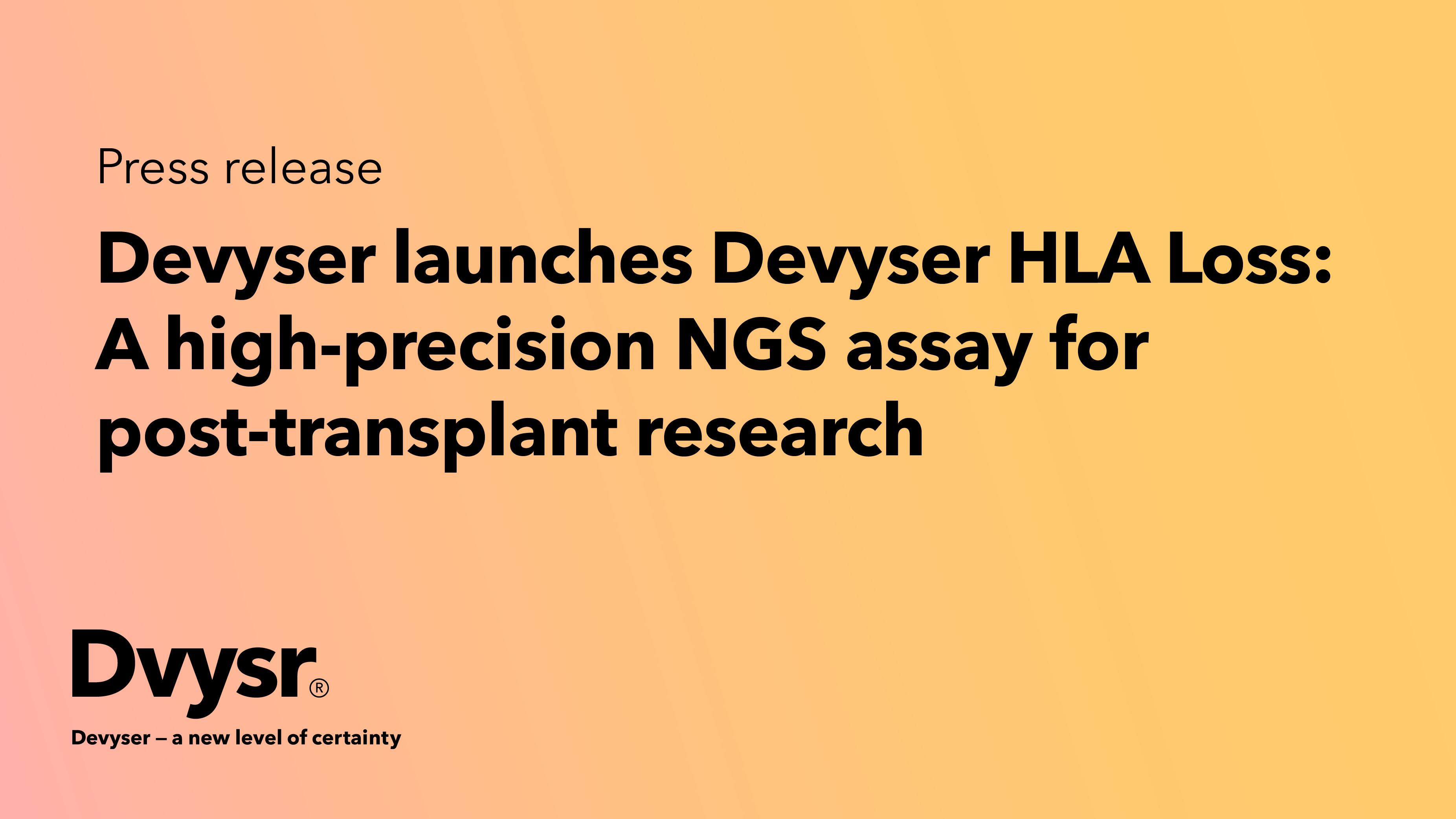Devyser launches Genomic Blood Typing assay: All blood groups, one simple test
Devyser today announced the global launch of Devyser Genomic Blood Typing, a next-generation...

Thalassemias | October 3, 2022
Thalassemias are haemoglobinopathies characterised by an abnormal haemoglobin production that can lead to anaemia and destruction of red blood cells. Alpha and beta thalassemia, the two main types of thalassemia, are caused by inadequate production of the α and/or ß globin molecule.
Symptoms of thalassemia vary from mild, to severe and even fatal. In 1990 more than 36,000 deaths were reported due to thalassemia. This has decreased to 16,800 in 2015 primarily due to national screening programs and family planning. Approximately 5% of the global population has a variant in the genes coding for the alpha or beta haemoglobin molecules. Of these, 34% have symptoms.
Alpha thalassemia is most common in sub-tropical and tropical areas. In certain ethnic groups, the prevalence can be as high as 30%, with up to 90% as carriers. Beta thalassaemia is particularly prevalent among the Mediterranean, African and South Asian population. It is hypothesised that alpha and beta thalassemia are more prevalent in malaria exposed regions due to improved disease protection.

Devyser today announced the global launch of Devyser Genomic Blood Typing, a next-generation...
Read More

Devyser, a pioneer in advanced genetic testing solutions, proudly announces the global launch of...
Read More

Devyser, a leading provider of advanced genetic testing solutions, has been awarded a significant...
Read More

The Accreditation Committee of the College of American Pathologists (CAP) has awarded accreditation...
Read More